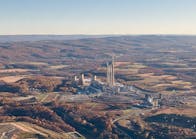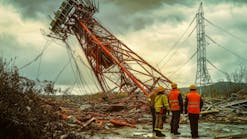Rio Tinto IOC Receives $13M+ from Canadian Government to Decarbonize Iron Ore Processing Operations
The Government of Canada has awarded more than $13 million from its Low Carbon Economy Fund to Rio Tinto’s Iron Ore Company of Canada (IOC) to support decarbonizing its iron ore processing operations at Labrador West.
With the funding, the IOC will reduce the amount of heavy fuel oil consumed to produce its iron ore pellets and concentrate.
To achieve this, the company will install an electric boiler, instrumentation, and fuel-efficient burners to displace emissions from its heavy fuel oil boilers and reduce heavy fuel oil consumption from its induration machines.
Over the project’s lifetime, IOC will experience a reduction of nearly 2.2 million tons of greenhouse gas emissions.
“Rio Tinto IOC has a plan to decarbonize and continue producing some of the lowest carbon-intensity high-grade iron ore products in the world. This project alone will eliminate approximately 9% of IOC’s greenhouse gas emissions. We look forward to collaborating with the Government of Canada and other partners towards our goal of achieving net zero emissions by 2050,” said Mike McCann, IOC President and CEO.
Equipment installation will begin in Q2 2024 and be completed in early 2025. The IOC projects it will create more than 100 jobs during the construction and implementation stages in Labrador West.





